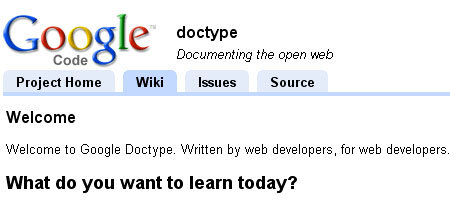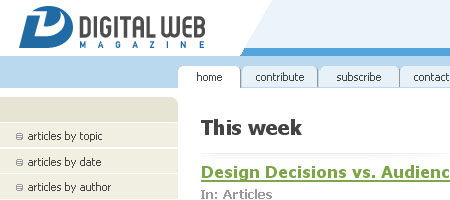You're not getting the job -- 25 reasons why
Here are 25 ways you might be unknowingly sabotaging your own job search:
The first steps
1. Not keeping track of your accomplishments
When you're happy with your job, it's easy to forget about possible future job hunts. You never know when you'll end up looking for new work, and if you don't keep a running list of awards, promotions and accomplishments, you might not remember them when it's time to update your resume.
2. Leaving on a bad note
As much fun as it is to fantasize about telling off a bad boss, don't actually do it. Leaving a trail of angry bosses or co-workers will come back to haunt you when you need references.
3. Not networking
If you're silent about your job search, your friends, family and colleagues won't think of you when they hear about job opportunities.
4. Only using the Internet
Online job boards are fantastic resources, but you need to do some footwork if you want to increase your chances of finding a job. Contact companies whom you'd like to work for, even if there are no job listings. Not all companies advertise openings online.
5. Only searching for the perfect job
Yes, your job search should be focused. After all, applying to every job posting that comes your way is a good way to waste time but not an effective way to find a job you want. However, if you approach your job hunt unwilling to accept anything less than the precise job title, pay, vacation time and hours you want, you're setting yourself up for disappointment.
The resume and cover letter
6. Writing a generic cover letter
If your cover letter looks like it could have come from a word processor template, right down to the "To Whom It May Concern," don't bother sending it. Hiring managers look for a candidate who wants that specific position, not someone who sends out applications en masse. Write a new cover letter for each job application and include details specific to that company.
7. Typos
Sending a cover letter or resume filled with grammatical mistakes and typographical errors shows hiring managers you don't care about the quality of your work and probably not about the job, either.
8. Including your current work info as the best place to contact you
Making sure employers can get in touch with you is important, but they shouldn't be contacting you at work. "Potential employers are going to question if these people will search for a new job on their time," says Kathy Sweeney, resume writer for the Write Resume.
9. Focusing on yourself and not on the company in the cover letter
"When 'I' is the predominant subject -- and there are times when it is the only subject of all the sentences in the cover letter -- it indicates to me that they don't understand my organization and its needs, and, in fact, says they don't care to know," says Dion McInnis, associate vice president for university advancement at University of Houston-Clear Lake. "And therefore, I don't care to know them."
10. Not targeting your resume to the position
Just like the cover letter, your resume should build a case for you to be hired for a specific position. If you're applying for a financial analyst position, don't waste space including your teenage stint as a lifeguard.
The interview
11. Showing up late
Nobody likes to be kept waiting, especially hiring managers evaluating whether or not you would make a good employee.
12. Dressing for the wrong job
Your interview attire should match the dress code of the company, or be one step up. If the office dress code is business casual, wearing jeans and a t-shirt won't work in your favor. On the other hand, if you're told dress is casual, you'll stick out if you show up wearing a double-breasted suit.
13. Not asking questions
When the interview comes to a close, the hiring manager will undoubtedly ask if you have any questions for him or her. Not asking anything is the equivalent of saying, "I don't care all that much about the job."
14. Badmouthing a former boss
When you talk to hiring managers about a previous employer, you're also talking about them. The way you talk about a previous employer is how interviewers think you'll talk about them in the future, so keep it civil.
15. Not paying attention
Another way to show you don't care much about the job is to get distracted. Answering your phone, sending texts or digging through your bag tells the interviewer that your focus is anywhere except on the interview.
16. Not researching the position
Your chief objective in an interview is convincing the hiring manager you're the best candidate for the job. How can you prove your qualifications if you don't have an idea of what skills you're expected to have and what your responsibilities will be?
17. Not researching the company
Employers want to know that your motivation for work is more than a paycheck. If you demonstrate that you know something about the company's history, its goals and its culture, you prove you want to be a part of the company.
18. Forgetting common etiquette
Don't cuss, chew gum, burp, take off your shoes, forget to shower or do anything else that's not appropriate in a business setting. Don't give the interviewer a reason not to hire you.
19. Forgetting you're being interviewed from the moment you walk in
Just because you're not sitting down at a desk across from the hiring manager, don't think you're not being evaluated. For example, employers will often ask their receptionists if you were nice them. Even if your interview involves lunch or dinner, you're trying to get a job, not show off your ability to down tequila shots.
20. Bringing up salary too soon
A rule of thumb is that you should never bring up pay; let the hiring manager do it. Of course employers are aware that you want to know about the salary, so they will bring it up when the time is right. Appearing too concerned with money suggests you aren't passionate about the position or the company.
After the interview
21. Not sending a thank-you note
Interview etiquette extends beyond the goodbye hand-shake. Follow up with the interviewer by sending a thank-you note, either by e-mail or in the mail. Not only is it standard business practice, it's also common courtesy.
22. Being over-aggressive in follow-up
Thanking the hiring manager for the interview is acceptable. You can even check in to see if a candidate's been hired if you were given a deadline for the decision. However, calling, e-mail or stopping by the office repeatedly is not persistent; it's annoying.
23. Not learning from your mistakes
Not every interview goes off without a hitch, so don't beat yourself up if you flubbed an answer or two. However, if you don't take the time to review each interview you go on, you're bound to repeat the same mistakes again and again.
24. Forgetting where you've applied and interviewed
After a few weeks, you've applied at more than dozen places and probably interviewed with a few companies. Eventually it's harder to remember where you've sent a resume or interviewed, and applying to the same place makes you look like an applicant who applies to any posting that pops up, not the best fit.
25. Stopping your job search while you wait for a response
Even if your interview for the job of a lifetime went well, don't freeze your job hunt while you wait to hear back. For a variety of reasons you might not get the job, or you might stumble upon an even better opportunity. You don't have anything to lose by continuing the hunt.























































